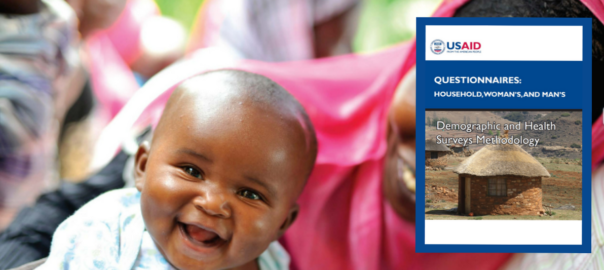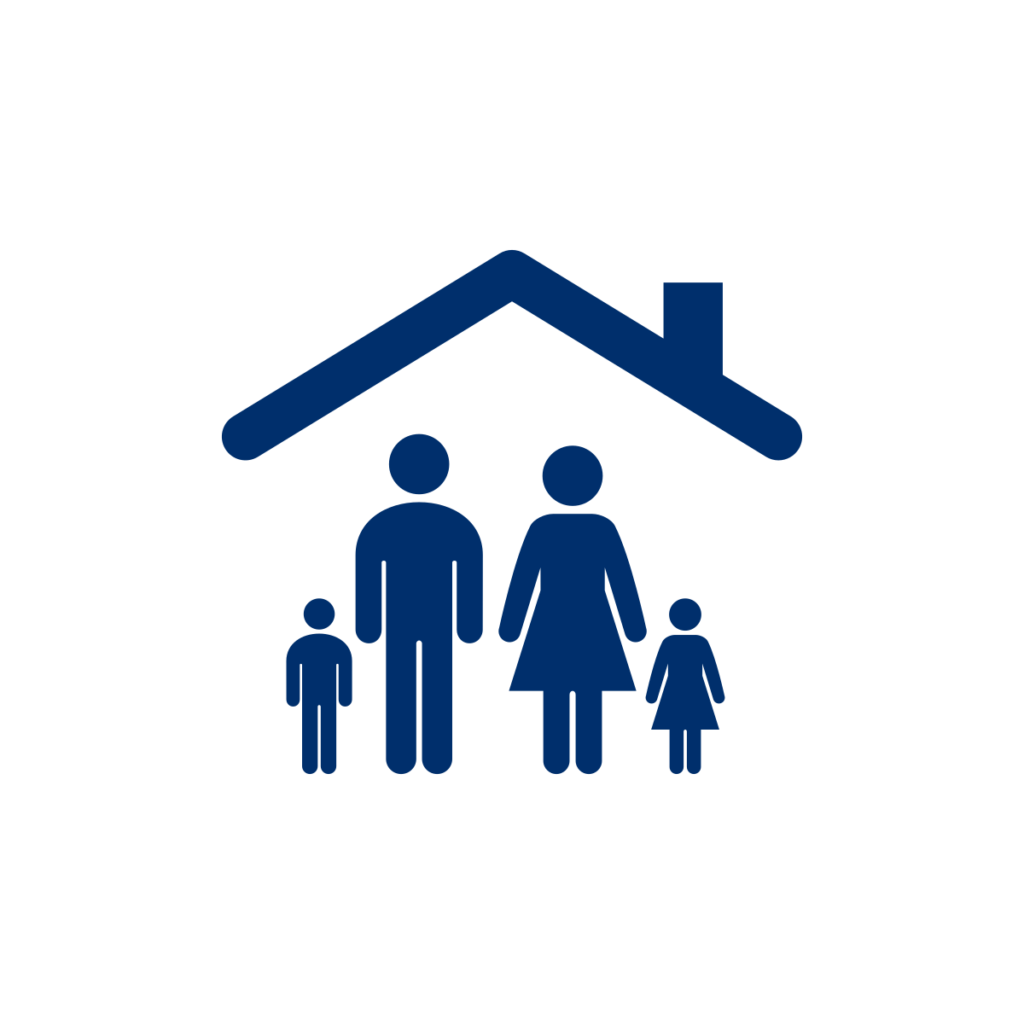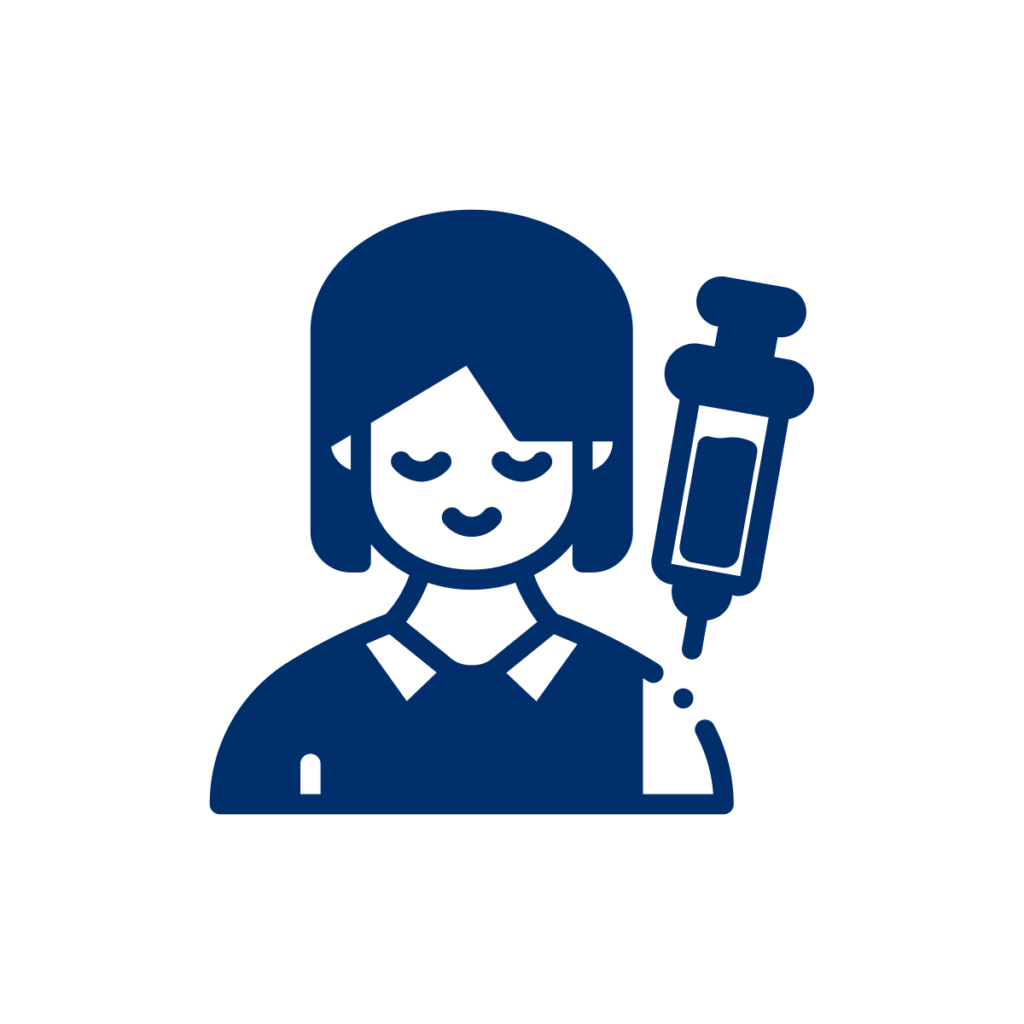New Optional Modules for DHS-8 Available

The DHS Program is pleased to announce the publication of three new optional modules for DHS surveys.
- Child Well-being and Household Structure
- Human Papilloma Virus (HPV) Vaccination
- Mental Health
In addition to the standard Household, Woman’s, and Man’s Questionnaires, which include questions that should be asked across DHS surveys, The DHS Program also maintains a series of optional modules that may be added to surveys to complement the core content. These optional modules offer a standardized way to collect data that may be of interest to select countries.
The story of these three new optional modules began with the open comment period that informed the DHS-8 questionnaire redesign. During this open comment period, The DHS Program received requests for questions on a few topics that we were not able to accommodate in the standard questionnaires but would be of interest in enough countries to be good candidates for optional modules.
The DHS Program developed draft questionnaires for the three modules listed above and included them in a pilot test along with new content added to the DHS-8 standard questionnaires. The data collection for the pilot for the DHS-8 questionnaires was conducted in Uganda from August-October 2021. Questionnaires were piloted in both English and Luganda. In the DHS-8 Pilot The DHS Program conducted 1,215 household interviews, 1,105 women’s interviews, and 346 men’s interviews. In addition to reviewing data from these interviews, the performance of the new DHS-8 standard content and optional modules was assessed by reviewing the results of 14 cognitive interviews, 7 focus group discussions with interviewers, and a quantitative interviewer feedback questionnaire.
Read more about these three new optional modules.
Child Well-being and Household Structure

This new module is an addition to the Household Questionnaire and focuses attention on children age 0-17 who do not live with a biological parent. It provides information on the primary caregivers for these children and collects data on interactions between the children and their biological parents, and on the transfer of money and goods between the biological parent and the household where the child lives. This information is important for understanding the well-being of children who do not live with their parents.
Human Papilloma Virus (HPV) Vaccination

Vaccination against HPV helps to prevent cervical cancer and is recommended for girls age 9-14 years, though the specific age range for this intervention varies across countries. The DHS Program does not interview girls in this age range, so this module collects information on HPV vaccination from girls age 15-17 years and is an addition to the Woman’s Questionnaire. Information on HPV vaccination is obtained via self-report of the respondents. The DHS-8 Pilot found that cards recording HPV vaccination were very uncommon, so most HPV vaccination data came from recall.
In the DHS-8 Pilot, a different version of this module was also tested, where mothers with daughters age 9-14 were asked about their daughters’ vaccination status. However, the approach of asking mothers about HPV vaccines received by their daughters did not perform as well as asking the youngest respondents about their own HPV vaccination. Both versions had some advantages and disadvantages. Interviewing young women about their own HPV vaccination produces less timely but apparently more complete information. The proportion of “don’t know” responses was slightly higher for the mothers’ report than for the questions asked directly to young women. This finding was supported by the qualitative results. During the interviewer focus groups, interviewers reported that mothers often did not know if their daughters had received an HPV vaccine or not, and they sometimes checked with their daughters during the interview to answer these questions. This is likely because HPV vaccination is mostly a school-based intervention in Uganda (as well as in many other countries).
Mental Health

For the optional module on Mental Health, The DHS Program chose to focus on two of the most common mental illnesses: depression and anxiety. This module is to be included in the Woman’s and Man’s Questionnaires. The Mental Health Module includes two existing psychometric scales. To measure symptoms of anxiety, The DHS Program adopted the Generalized Anxiety Disorder screen (GAD-7), a seven-item scale often used as a clinical screening tool, as well as in surveys. The second part of the Mental Health Module measures symptoms of depression. We adopted the Patient Health Questionnaire (PHQ-9), which is a nine-item depression scale also used widely as a screening tool in healthcare and survey settings. The Mental Health Module also includes questions on care-seeking for symptoms of anxiety and depression, prior diagnosis by a physician, and treatment. Notably, this module does not provide clinical diagnoses or measure the prevalence of anxiety or depression; rather, it reports on the percentage of respondents who report experiencing symptoms of these two mental illnesses. Special care must be taken in adapting and translating the questions to ensure they are understood and relevant in the local context. The 2022 DHS surveys in Nepal and Mozambique are the first to include the Mental Health Module.
Find all DHS-8 optional modules on The DHS Program website.
